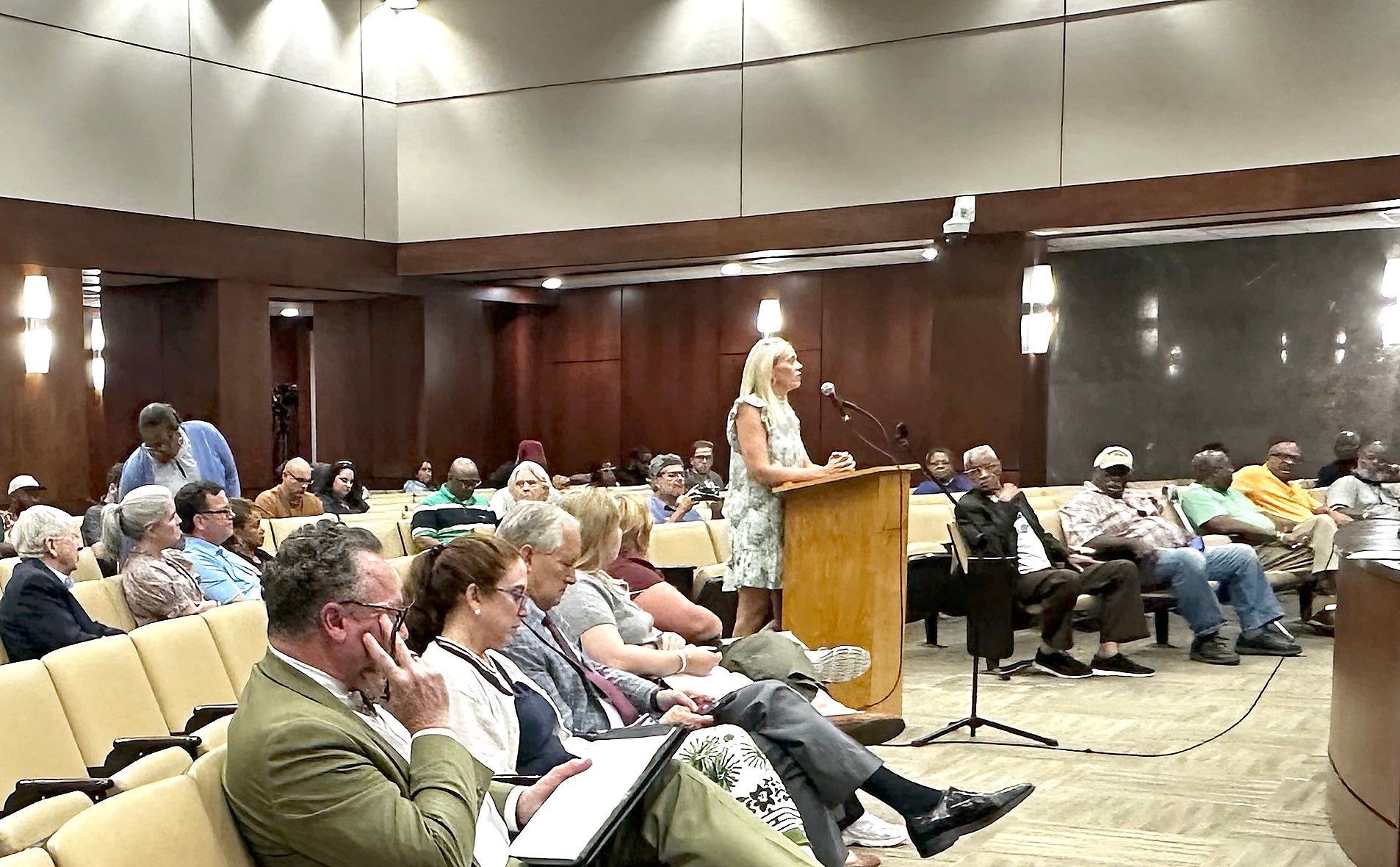Robust turnout at first public hearing
About 50 residents — including former elected officials, Sheriff Gino Brantley and Mayor Garnett Johnson — attended Thursday’s inaugural public hearing of the 11-member Charter Review Committee.
The committee, charged with recommending revisions to the consolidation charter that put the 10-member Augusta Commission in charge of the government in 1996, listened as Sheriff Brantley urged streamlining, saying large metro Atlanta counties have smaller county commissions. Most have city governments that increase representation.
“I’ve come to realize that the more people I have to get to agree to get something done, it’s probably not going to get done,” Brantley said.
Considered revisions under discussion
Among the proposals under review are reducing the number of commissioners and shifting to a strong-mayor form of government. The city is paying the Carl Vinson Institute of Government at the University of Georgia $320,174 to have four consultants help facilitate the revision process and draft the new charter.
Lauren Dallas of Augusta Tomorrow commented that placing “someone fully in charge” could improve functionality. “What scares me is how do we get it done. Is six really the magic number?” — a reference to the six votes required for ordinary business under the current charter.
Augusta Tomorrow will soon unveil a master plan for the city and hopes the local government will cooperate in making it a reality, she said.
Guidance from Vinson Institute
Rex Facer, head of local government services at the institute, presented various governance models, noting that larger cities often vest executive authority in a mayor or manager. He said the institute is reviewing research articles and gathering data from national city and county organizations. “We’re trying to be responsive to the committee,” Facer said.
Divergent community perspectives
Among those who addressed the committee was David Hudson, attorney for the Georgia Press Association as well as The Augusta Press. Hudson spoke of his involvement for six or seven years in earlier efforts to consolidate the local government.
“What I would do now with that experience if I was sitting on this committee,” Hudson said, is “I would get the Vinson committee to come and tell us what they have seen that has worked the best,” such as the particular arrangements in Georgia’s other consolidated governments of Macon, Columbus and Athens. “This has been their lifetime work – get them to tell us what they’ve seen work well in other places.”
Several community members including former commissioners Moses Todd and Ben Hasan who spoke at the hearing argue that under both the current Augusta charter and the U.S. and Georgia constitutions, an eight-vote (two-thirds) supermajority is required to recommend any charter changes, rather than six votes.
Concentrating power
Olde Town homeowner Ryan Borders commented that having a manager run the government “seems to be more effective.” Augusta has an administrator who reports to the mayor and commission and lacks executive authority.
Under the current system, basic services such as grass cutting and road work prove challenging, he said. “I would ask the question, is it really an effective form of government if we cannot fix those basic things that should be a very easy tee up for the local government?”
Pastor Anthony Booker of the Baptist Ministers Conference warned against concentrating power in the mayor. “If everything sits in one chair, there’s no guardrails,” he said. Later he added that the committee is operating on the premise that the city government is “broke,” but it’s not.
Committee chair Marcie Wilhelmi acknowledged community concerns about electing the “wrong mayor.” She said Johnson does not want a veto, which is common in the strong mayor form.
Less common is Augusta’s current arrangement, where Johnson votes with the commission, committee member Sheffie Robinson responded. The result is a lack of separation between the executive and legislative branches, she said.
Accessibility and transparency questions
Members of the public had more general questions, such as where to find the existing charter online. “I should be able to see our charter in a couple clicks,” said Robert Gentry.
The “charter” isn’t on the city’s home page but documents are posted on the committee’s page, https://www.augustaga.gov/3314/Charter-Review-Committee, committee members noted. The page includes the original 20-page Consolidation Act as well as 150-plus pages of local ordinances, state law and other material that the institute says was added to it.
Scientist Matt Cridell commented he was very interested in the process and data Augusta the institute and committee are using to complete the tasks. Battle Row homeowner Ellie Benson commented that some committee members’ comments appeared biased or conjectural. ‘Everything that we’re hearing should sound neutral,” she said.
Local businessman J.R. Riles commented that Augusta administrators are keenly aware their jobs hinge on “six votes.” He added, however, that the community believes the committee already has six votes lined up for a certain plan.
“You know what they say out in the street? That y’all already got a set mind. That you all the mayor’s puppets. That’s what’s out in the street,” Riles said. Wilhelmi said the committee was “unaware.”
What lies ahead
Businessman Randy Sasser asked how long the public has to respond to the committee’s survey. Through July 31, he was told. Sasser said he “can’t imagine having 11 bosses,” as is the case for Augusta’s administrator. He also asked what the committee’s end goal is.
Using a “fair amount of community input,” Wilhelmi said, the goal is to present the best effort the committee can muster, “along with heavy involvement from Carl Vinson.”
Wilhelmi concluded the hearing by stating the committee has become daunted by its charge. “We all were a little blown away by the scope and size of this task,” she said, asking those who pray to “pray for this group for wisdom.”
The committee has set a schedule of regular meetings every other Thursday at 10 a.m. and holds subcommittee meetings afterward at 1 p.m. The next meetings are tentatively set for July 24.
The committee’s next public hearings are scheduled for 6-8 p.m. July 21 at Warren Road Community Center and July 22 at Robert Howard Community Center at Diamond Lakes Regional Park.
The committee’s next public hearings are scheduled for 6-8 p.m. July 21 at Warren Road Community Center and July 22 at Robert Howard Community Center at Diamond Lakes Regional Park.











